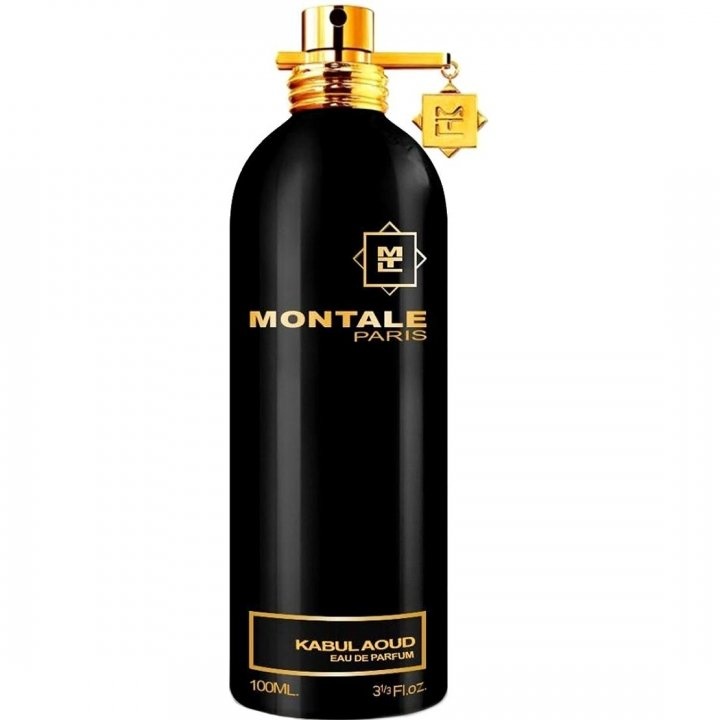Kabul Aoud Unknown Brand / Unbekannte Marke 2011
69
Top Review
Translated
Show original
"You smell like home!"
the young man sitting opposite me on the old carpet, the hot tea between us, said in his eyes, "How can that be?".
At home, that was far away in Afghanistan, in a country he had left, had to leave with the girl who was now his wife and the child she carried under her heart.
That was three years ago, almost four.
They had had to leave when the killing came ever closer, when the nights exploded in a cacophony of noise and light, when more and more houses became ruins and buried the inhabitants under themselves.
"How could we have stayed?" he asked and looked at me as if I actually had an answer.
For a while we remained silent and looked at the boy who was forgetting himself playing with the colorful blocks that had been in his pocket today, that always came with me, that made his eyes shine in the face of the treasures it contained time and time again.
He was the reason for my visits, the reason why I sat here, here with him and his father, who was so young and yet so old, twenty years only, twenty years already, whose eyes had seen more than did him good.
"He wouldn't live," he said, "not where we come from. There's no life there for children like him."
For children who did not hear, who could not walk and did not speak, children who were different and like him.
The boy who now looked for my eyes, searching, inquiring, waiting for my smile, the calming, teasing one with which I took a block and held it behind my back until he laughed and pulled my sleeve.
"Give me! My - want to play!" he gestured - slowly, insecure, so very clear.
I gave him the block, took two others, built a tower with him, higher and higher, until he fell down and the stones rolled up to his father's knee.
He smiled, lovingly and proudly at his son: "It is good that he is here, that we can be here. I'm grateful. And I miss Afghanistan so much. It wasn't always like that, you know?!"
And he began to tell about his village with the six houses, about the people who lived there and with them the cattle - "a few sheep and chickens everyone had, a few cattle for which there was not much food near the village.
In summer, when it was very hot and no rain fell, we went up with them to the mountains, my father, my uncle and me. Where it was a little cooler, where grass still grew, salty, spicy grass, brown and grey of dust, but food for the animals.
Sometimes we had to go far until we found something so far that we didn't come back home that night. We stayed with the animals on the mountain and sat in the evening around the fire, which smoked and fumed and almost suffocated us, but which warmed and on which we cooked coffee in old tin dishes.
We chewed liquorice and smelled the warm, dusty fur of the animals, the dry herb and the rocks, the smoke of the fire and ourselves in the coarse clothes that are very different from what we wear here.
The men told stories and I, a boy still, listened to them, stretched out by the fire, my arms folded in the neck and the look in the stars that were so bright and so close and so many, so many, so many, you can't count them, never, never.
It was very quiet up there, only sometimes you could hear one of the animals in the dark and another one answering - and the wind of course, the wind that was always there.
It was nice there, you know?! Wild and beautiful and peaceful - nobody ever thought of war or of not being there anymore. I thought it would always stay that way, I would always stay there like my father and his father and all fathers before him. And now I'm here," he concluded, still looking at the boy, his son.
His wife had been in the room while he was talking, quiet, inconspicuous, a little incense igniting in the corner whose scent was coming over to us and mixing with the dark tea.
We were silent again.
It was time for me - the next child.
In my pocket I found "Kabul Aoud", the tube still half full.
I put it next to his tea and left.
At home, that was far away in Afghanistan, in a country he had left, had to leave with the girl who was now his wife and the child she carried under her heart.
That was three years ago, almost four.
They had had to leave when the killing came ever closer, when the nights exploded in a cacophony of noise and light, when more and more houses became ruins and buried the inhabitants under themselves.
"How could we have stayed?" he asked and looked at me as if I actually had an answer.
For a while we remained silent and looked at the boy who was forgetting himself playing with the colorful blocks that had been in his pocket today, that always came with me, that made his eyes shine in the face of the treasures it contained time and time again.
He was the reason for my visits, the reason why I sat here, here with him and his father, who was so young and yet so old, twenty years only, twenty years already, whose eyes had seen more than did him good.
"He wouldn't live," he said, "not where we come from. There's no life there for children like him."
For children who did not hear, who could not walk and did not speak, children who were different and like him.
The boy who now looked for my eyes, searching, inquiring, waiting for my smile, the calming, teasing one with which I took a block and held it behind my back until he laughed and pulled my sleeve.
"Give me! My - want to play!" he gestured - slowly, insecure, so very clear.
I gave him the block, took two others, built a tower with him, higher and higher, until he fell down and the stones rolled up to his father's knee.
He smiled, lovingly and proudly at his son: "It is good that he is here, that we can be here. I'm grateful. And I miss Afghanistan so much. It wasn't always like that, you know?!"
And he began to tell about his village with the six houses, about the people who lived there and with them the cattle - "a few sheep and chickens everyone had, a few cattle for which there was not much food near the village.
In summer, when it was very hot and no rain fell, we went up with them to the mountains, my father, my uncle and me. Where it was a little cooler, where grass still grew, salty, spicy grass, brown and grey of dust, but food for the animals.
Sometimes we had to go far until we found something so far that we didn't come back home that night. We stayed with the animals on the mountain and sat in the evening around the fire, which smoked and fumed and almost suffocated us, but which warmed and on which we cooked coffee in old tin dishes.
We chewed liquorice and smelled the warm, dusty fur of the animals, the dry herb and the rocks, the smoke of the fire and ourselves in the coarse clothes that are very different from what we wear here.
The men told stories and I, a boy still, listened to them, stretched out by the fire, my arms folded in the neck and the look in the stars that were so bright and so close and so many, so many, so many, you can't count them, never, never.
It was very quiet up there, only sometimes you could hear one of the animals in the dark and another one answering - and the wind of course, the wind that was always there.
It was nice there, you know?! Wild and beautiful and peaceful - nobody ever thought of war or of not being there anymore. I thought it would always stay that way, I would always stay there like my father and his father and all fathers before him. And now I'm here," he concluded, still looking at the boy, his son.
His wife had been in the room while he was talking, quiet, inconspicuous, a little incense igniting in the corner whose scent was coming over to us and mixing with the dark tea.
We were silent again.
It was time for me - the next child.
In my pocket I found "Kabul Aoud", the tube still half full.
I put it next to his tea and left.
29 Comments
Latest Reviews
 Palonera 4 years ago
Palonera 4 years ago
La Danse Bacchanale
The other day under 'm almond tree
a cashmere dream floats down
finely spun, quiet,
magical and light as a feather,
calibrated for sunlight,
sends me on a journey
Year by year it goes back,
lighter becomes the time luggage,
my worries disappear,
to...
Translated




